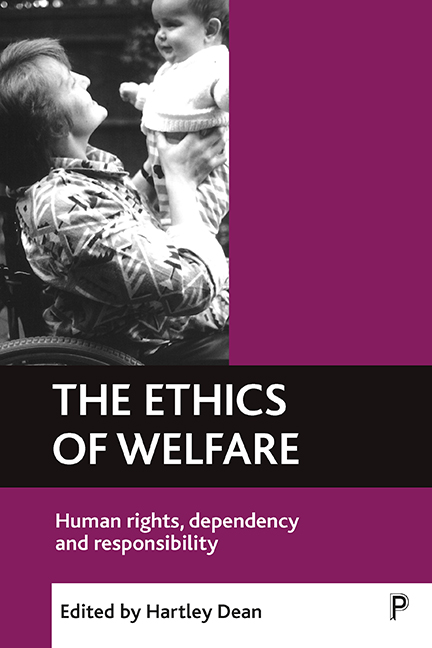eight - Ethical techniques of the self and the ‘good jobseeker’
Published online by Cambridge University Press: 20 January 2022
Summary
Introduction
Chapter Three of this book has already discussed the different ways in which governmental press releases may ‘constitute’ the citizen. In Chapter Six, I have with Hartley Dean already discussed how the information and knowledge of benefits administrators affords them the ability, in certain ways, to transform or ‘reconstitute’ the social security claimant. One of the time-honoured ways in which benefits claimants have been understood and managed has been by partitioning them between deserving and undeserving cases. Through a textual analysis of two British government documents, this chapter looks at how governmental discourse both addresses and manages two different types of unemployed person or ‘jobseeker’ (here referred to as the ‘good jobseeker’ and the ‘deviant jobseeker’). It is argued that although governmental discourse about unemployment requires jobseekers to abide by the strict market ethic of employability, flexibility and continuous learning, they are afforded only limited rights. This chapter briefly outlines the current political context surrounding unemployment policy in Britain and the theoretical background to the analysis, and then offers a commentary upon the two documents.
Choice of documents
The two documents chosen for analysis are The job kit: Your job search guide (DfEE, 1998a) and Job hunting: A guide for managers, executives, professionals, new graduates (DfEE, 1998b). Both of these documents are, in theory, readily available to jobseekers and are concerned to offer help and advice with job seeking, such as how to write a curriculum vitae (CV) and covering letter, and how to perform at an interview. Both documents are relatively lengthy A4 booklets (approximately 70 and 50 pages respectively), with a fairly ‘glossy’ presentation.
One of the primary distinctions between Job hunting and The job kit is the fact that they are directed at a very different reader. For example, Job hunting assumes a far higher level of competency from its readers, and also affords them a far greater degree of autonomy in managing their own time. Furthermore, the document assumes that its readers are to a large extent already in control of their status and need only basic advice and information. This contrasts sharply with the various modes of governance found within The job kit, which acts as a strong disciplinary mechanism.
- Type
- Chapter
- Information
- The Ethics of WelfareHuman Rights, Dependency and Responsibility, pp. 155 - 172Publisher: Bristol University PressPrint publication year: 2004
- 1
- Cited by



